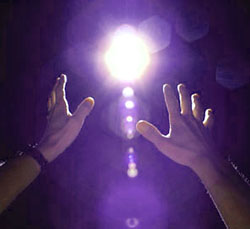Any action, regardless of its nature, done in this way, will not enchain its performer
 Kåñna
Kåñna
says in Bhagavad Gita: “The one who is in the state of Yoga (i.e., is united with the Supreme by the perfect practice of Karma Yoga) even if he acts, because his actions are detached they will not bind him”. This is what Swami Vivekananda also says: “If we are attached to our activity, this will not serve our soul in any way”(Practical Yoga).
Swami Sivananda
says: “The action done without attachment, therefore with a good mental attitude, without the hope for any profit, with indifference towards a possible success or failure, will not add a new link to the existing [karma-ic] chain” ( Teachings Of Sivananda).
This is what Sri Ramakrishna meant when he said: “The Jïana Yogi can act without any attachment and therefore his actions will not be harmful for him” (Teachings of Ramakrishna).
For understanding even deeper this fundamental principle of Karma Yoga we will take a look at the Hindu metaphysical perspective where the belief in successive lives and the law of Karma is self-evident.
To summarise this theory, we can say that the life, which each one of us is living now, is not a single event, but one link in a long chain of successive lives in which the eternal element in us, (called Atman by the Indians), is continuously reincarnating.
The law of Karma is nothing else than the law of action and reaction – all actions performed in any one of these lives will accurately determine certain effects: if not immediately, then in one or more of our future existences, thus bringing forth a manifestation of the Karma that was accumulated in previous lives. But the goal of evolution is to reach the point where all Karma is exhausted, so that the eternal element in us (Atman) is no more obliged to create new bodies.
All Eastern sages, old and new, affirm that what creates a new Karma for us is not the action itself, but the spirit (i.e., the inner state) in which that action is performed. Swami Vivekananda says about this: “All actions that you selfishly perform for yourself, will inevitably bring you their fruits, and there will be no choice for you but to eat them … But all actions, regardless of their nature, that you do in the spirit of Karma Yoga will for ever remain without effect upon you” (Practical Yoga). Consequently, the practice of Karma Yoga offers us the possibility to act without creating new Karma. This is what Sri Aurobindo refers to in the following quote: “Not the outer form of activity in itself, but the consciousness and the will firmly directed toward the Divine which is behind the action, are in fact the essence of Karma Yoga“.
 In the Karma Yoga system it is necessary to dissociate three elements which we, generally, never separate:
In the Karma Yoga system it is necessary to dissociate three elements which we, generally, never separate:
-
The
intention
of the action – which, if we act selfishly, is the only one who creates karma; -
The action
– which, by itself, cannot create karma; -
The consequences (results)
of the action, upon which, most of the time, we do not have any control no matter what our predictions or expectations may be.
How can we transpose this theory to Westerners, who most of the time do not accept the idea of multiple reincarnations? If we apply the Karma Yoga technique correctly, we are not worried about the consequences of our actions any more, because they do not depend of us anymore. This makes all selfish remorse and egotistical regrets disappear automatically. From here an important conclusion can be drawn: when we start practising Karma Yoga, we must, completely and unconditionally, give up any claims for any merit, even for those actions whose consequences or fruits are good.
Because we are fully responsible for our selfish intentions only, we can say that the goal (intent) of our actions and its materialisation in selfish actions are the factors which create in us selfish habits and tendencies, thus moulding our character. This is the result of
karma
and this is valid even if we believe in a unique existence. This is even more striking if we admit, like almost all religious followers, that after death we will collect the gratification or the punishments that we deserve according to our actions during life.
yogaesoteric
Also available in:
 Română
Română
